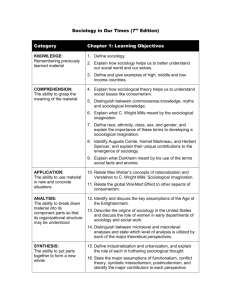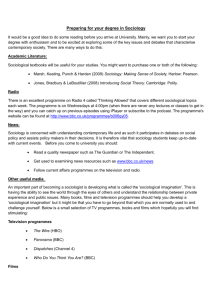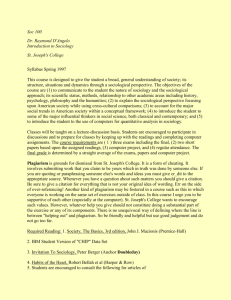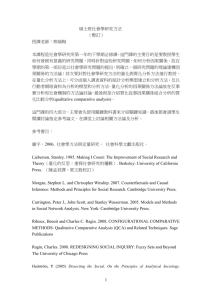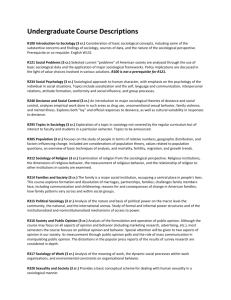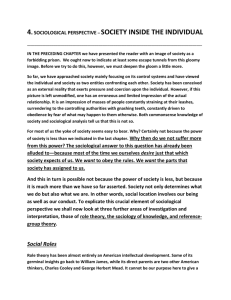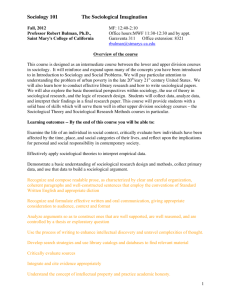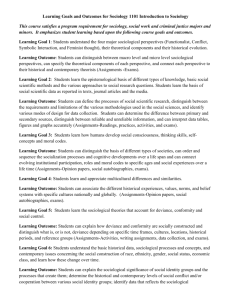Sociological Consciousness
advertisement
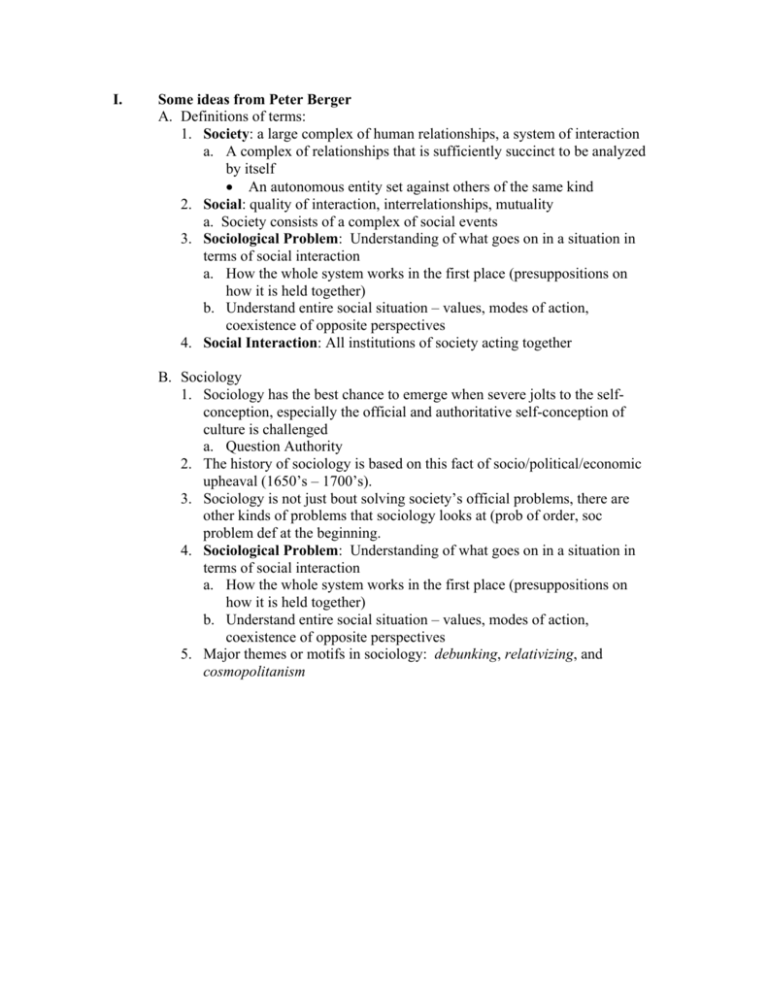
I. Some ideas from Peter Berger A. Definitions of terms: 1. Society: a large complex of human relationships, a system of interaction a. A complex of relationships that is sufficiently succinct to be analyzed by itself • An autonomous entity set against others of the same kind 2. Social: quality of interaction, interrelationships, mutuality a. Society consists of a complex of social events 3. Sociological Problem: Understanding of what goes on in a situation in terms of social interaction a. How the whole system works in the first place (presuppositions on how it is held together) b. Understand entire social situation – values, modes of action, coexistence of opposite perspectives 4. Social Interaction: All institutions of society acting together B. Sociology 1. Sociology has the best chance to emerge when severe jolts to the selfconception, especially the official and authoritative self-conception of culture is challenged a. Question Authority 2. The history of sociology is based on this fact of socio/political/economic upheaval (1650’s – 1700’s). 3. Sociology is not just bout solving society’s official problems, there are other kinds of problems that sociology looks at (prob of order, soc problem def at the beginning. 4. Sociological Problem: Understanding of what goes on in a situation in terms of social interaction a. How the whole system works in the first place (presuppositions on how it is held together) b. Understand entire social situation – values, modes of action, coexistence of opposite perspectives 5. Major themes or motifs in sociology: debunking, relativizing, and cosmopolitanism C. Sociological Consciousness is a modern form of consciousness. 1. Look beyond the commonly accepted or officially defined goals of human actions a. Human events have different levels of meaning – some are hidden 2. May cause suspicion about the way official events are reported (gulf war, tobacco, Who Owns the Media?) 3. Requires “seeing through,” or “looking behind” what is already commonly accepted. a. Sociological Curiosity: Seeing through the facades of social structures, wishing to penetrate the mystery (power – official record vs. old boy network/illuminati) b. Penetrate the smoke screen of the official versions of reality (Love – emotion or based on class, race, econ, ed, etc.) 4. Predisposes one towards an awareness of worlds other than that of middle class respectability 5. Detachment from the taken-for-granted posture of society a. Questions “of course” type statements 6. Must understand the relativity of society a. Our culture is relative in space and time, and different strata of society b. Not only identities , but ideas are relative to specific social locations 7. Always potentially dangerous to guardians of the public order (establishment) a. Question the claim of absolute rightness (Is there a better way?) D. Debunking 1. The debunking motif is inherent in sociological consciousness (debunk social system) a. unmasking tendency – looking for levels of reality other than the official interpretations







